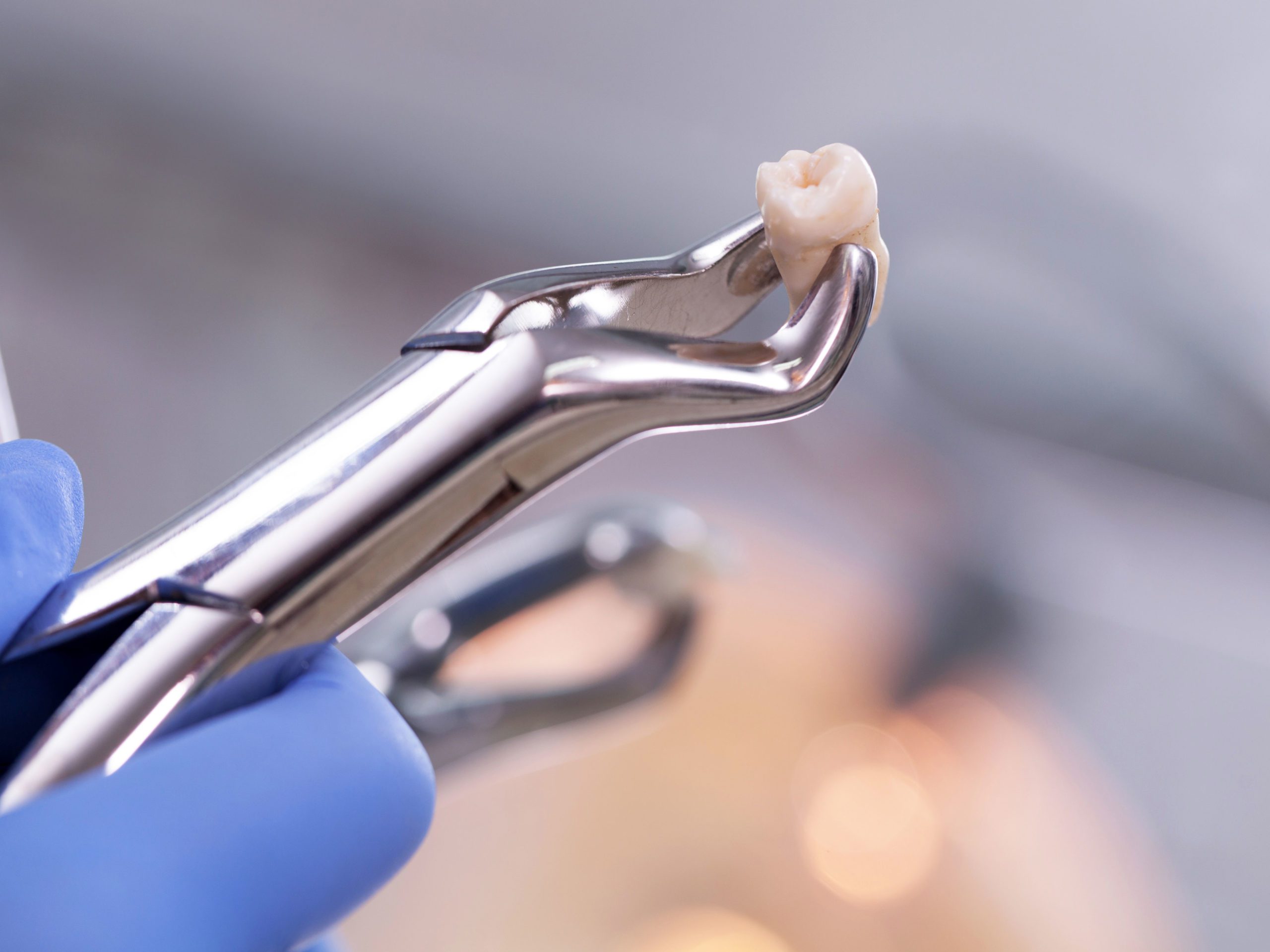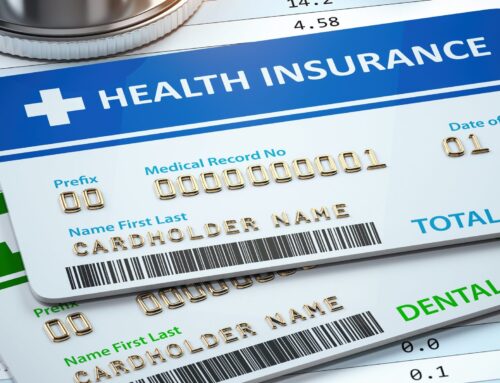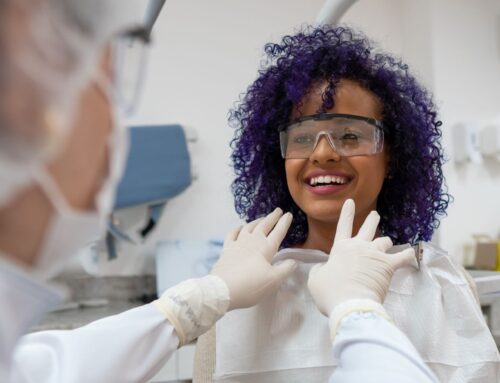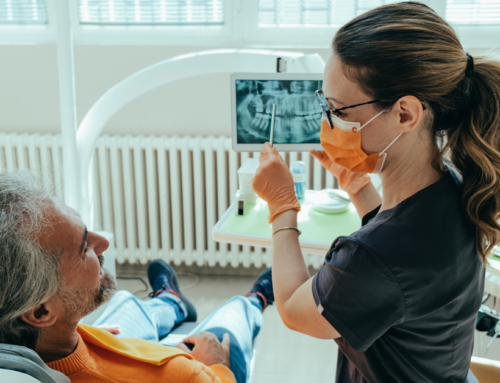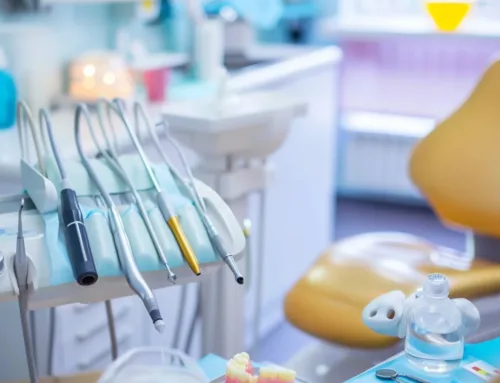Tooth, Begone! Extractions Explained
Whether you’re experiencing tooth pain or not, there are several reasons why a dentist will recommend tooth removal. Most people plan to have their wisdom teeth removed, but it isn’t something we look forward to due to the anticipated discomfort, so in many cases, dealing with the issue is postponed.
Unfortunately, removal can become more complicated if infection or other problems arise, so it’s better to see your dentist as soon as you’re aware of discomfort in your mouth. Even dull pressure in the jaw can mean a tooth is trying to find more space. A dental exam will help determine what the cause is, but ideally, most issues should be caught long before any soreness is obvious. Avoiding dental care can end up being more painful in the long run, so the best policy is to “grin and bear it” when it’s time for your checkup.
Reasons For a Tooth Extraction
DECAY: When infection reaches the tooth root, which contains nerves and blood vessels, it can eventually spread and cause greater harm throughout the jaw, or even worse. If repairing the tooth won’t prevent further infection because the decay has spread too far into the root, removal will be necessary. An immune-compromised person might need a tooth extraction due to a greater risk of complication from infection. Sometimes the issue is more complicated, as in the case of periodontal disease. This can lead to loose teeth, which dentists will recommend for removal.
DAMAGE: A cracked tooth or one that has considerable structural issues can be a hazard due to the tendency to splinter or crack when least expected, which can be extremely painful but also dangerous, both in terms of infection or immediate injury to the mouth.
IMPACTED: Most common with wisdom teeth, sometimes a tooth is unable to fully pierce the gum (due to space constraints), and infection can result when bacteria collects under the tiny flaps of skin surrounding the tooth. Because teeth in this situation are almost impossible to clean, dentists recommend removal as soon as possible, even if the gum is not irritated or there is no discomfort, to prevent issues from developing as the tooth continues shifting position. Quite often, however, impacted teeth are below the surface of the gum, in which case, the dentist may need to cut away both tissue and bone to reach the tooth. These removals can involve considerable force, using forceps to grab the tooth and gradually wiggle it to loosen the ligaments that hold it in place. Sometimes the tooth will need to be broken to facilitate extraction. Many people have found the noises to be almost as disturbing as the pain after the procedure, so if you are awake for the procedure, you might want to bring earplugs to assist with comfort.
CROWDING: Whether it’s a wisdom tooth or an optional extraction, in many cases a tooth is removed because there isn’t enough room in the mouth. An overcrowded mouth can increase discomfort and tooth wear due to uneven biting, so orthodontists often will recommend tooth extraction during the process of fitting braces.
A permanent tooth that is already in place is much easier to remove than one that is partially or fully under the gums, so the procedure will be considerably different depending on each situation. In advance of the extraction, the dentist also needs to know about any recent or upcoming medical conditions and procedures that might interfere with healing, including prescriptions.
Once you have an appointment for extraction, plan ahead and set aside a few days after for a smooth recovery. Even a straightforward tooth removal can take several days to feel like it’s healing, so you’re better off postponing any physically demanding activities until the initial discomfort subsides.
Depending on the extraction, the dentist or oral surgeon will use either local or general anesthetic. Patients with anxiety issues or pain sensitivity can ask their dentist if general anesthetic is an option, whereas some patients might prefer to use minimal pain control due to sensitivities with medication. A conversation with your dentist is always a good idea when in doubt, but be sure to ask these questions well before your appointment.
Aftercare
Don’t expect to drive home; due to the anesthetic, you’ll probably be groggy after the appointment, so be sure to arrange for transportation.
In some cases, your dentist may use stitches to close the gums where the tooth was removed, but most often, a gauze pad will be placed over the area and you’ll be asked to bite down to hold it in place. Change the pad if it becomes soaked with blood, but hold in place for at least three hours. This helps the blood clot to form, which is important: Dry socket is a condition when the blood clot doesn’t form properly, and the underlying bone becomes exposed. This is a painful situation that needs immediate attention. Your dentist will reapply dressing to the area, and might want you to return for reexamination if healing appears to be delayed.
For the first 24 hours, avoid any mouth rinsing or spitting to ensure the blood clot is fully formed. After that, frequent gentle rinsing with warm, salty water will help with healing (use about half a teaspoon per cup), but the area will be tender for a while. Most dentists recommend only soft/liquid foods for the first 24 hours, and smokers should refrain if possible to speed the healing process. Drinking from a straw also should be avoided in the first few days. Eating solid foods can be tricky for the first week, so favour the other side of your mouth and avoid any extra hard or crunchy foods.
Your dentist may recommend antibiotics if there is a chance of infection, and it’s important to let them know if you have any serious health conditions well before the appointment; they may recommend that you start antibiotics in advance of the extraction. Tooth removal can cause mouth bacteria to recirculate into the bloodstream, which can cause serious issues for those with compromised immunity, so taking antibiotics can ensure that complications are reduced.
Painkillers will be prescribed, of course, and personal preference dictates how long those will be required. Speak with your dentist if more pain relief is needed, but be sure to educate yourself on drug side effects, and always remember to disclose all medications you’re on in case of undesirable interactions with any new prescriptions.
Ice packs will assist with pain management and also reduce swelling. The sooner an ice pack is applied, the better; hold on the area for several minutes at a time, as needed. Along with avoiding physical activity for the first few days, it is best to maintain an elevated head position to prevent further bleeding.
If several hours have passed since your appointment and you are still experiencing a large amount of bleeding, call your dentist. The pain and bleeding should gradually decrease, but any other signs of infection or illness (including fever, nausea or shortness of breath) should be immediately reported to your dentist, because these symptoms could indicate a complication. Monitor the swelling around the area, and if there seems to be an increase of redness or tenderness, let your dentist know. Within a few days there should be noticeable improvement and reduced pain.
A couple of weeks after the procedure, you should be feeling “back to normal,” although there could be gradual shifting in your mouth as a result of the extra space left behind. Your dentist might recommend a dental implant, fixed bridge or denture if the extraction is likely to cause other issues such as difficulty eating or excessive tooth wear. Those might seem like minor issues after dealing with an extraction, but as many of us know too well, ignoring one dental problem can lead to many more.
Contact Us Today for Your Tooth Extraction
If you or someone you love is experiencing pain or discomfort due to any of these issues, the team here at Georgian Dental is here to assist you. Book your appointment today and get the information you need to make the best choice in treatments.
Appointment Request
If you’re interested in any of our procedures, and would like to meet with one of our dentists to discuss options, costs and get additional information, complete this short form and we’ll give you a call to arrange for a no-obligation appointment at our Barrie clinic.
